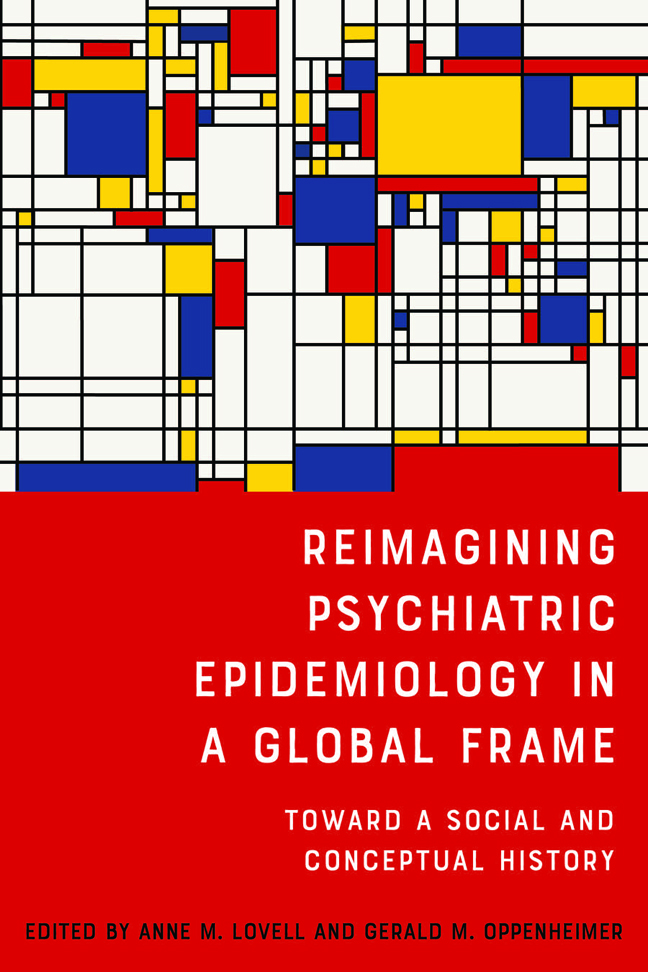Book contents
- Frontmatter
- Contents
- Acknowledgments
- Introduction
- Part One Constructing Mental Health Utopias and Dystopias with Epidemiology
- Part Two Troubling the Boundaries of Psychiatric Epidemiology
- Part Three Decentering Psychiatric Epidemiology in a Postcolonial World
- Selected Bibliography
- Notes on Contributors
- Index
Eight - The Evolution of Community Epidemiological Studies in India: A Subaltern Critique
Published online by Cambridge University Press: 15 February 2024
- Frontmatter
- Contents
- Acknowledgments
- Introduction
- Part One Constructing Mental Health Utopias and Dystopias with Epidemiology
- Part Two Troubling the Boundaries of Psychiatric Epidemiology
- Part Three Decentering Psychiatric Epidemiology in a Postcolonial World
- Selected Bibliography
- Notes on Contributors
- Index
Summary
A Subaltern Framework for Psychiatric Epidemiology in India
The World Health Organization (WHO) international program on the epidemiology of mental disorders began in the 1950s. By the 1960s, ground rules had been established for what was becoming the scientific discipline of psychiatric epidemiology and for facilitating its expansion throughout the world. Non-Western countries like India soon initiated studies in this area within their own constraints. By the 1960s, psychiatric epidemiology articles first appeared in the Indian Journal of Psychiatry. They borrowed methods and tools from the Western epidemiological canon but for different purposes and with markedly different results than those produced in wealthier countries. In retrospect, dissimilarities between findings in India and in Western countries tended to be attributed to methodological rather than contextual factors.
This chapter explores the specificity and evolution of the epidemiology of mental disorders in India and their social, cultural, and political significance. Numerous scholars claim that the history of psychiatry in India began in a period of Indian subalternity to British colonizers, who represented the diversity of “Indian” pasts through a homogenizing narrative of transition from a “medieval” period to “modernity.” We argue that psychiatric epidemiology in post-Independent India also exists in a position of subalternity but to a globalized psychiatry that has developed in the global North. This chapter further addresses subalternity within India by focusing on the mental health of lower castes, slum-dwellers, and other subpopulations that exist in a subaltern relation to social groups in their own country.
The “subaltern,” as we use the term, stands in an ambiguous relation to power, subordinate to it without fully consenting to its rule. Nor does it accept the point of view or vocabulary of dominant powers as a valid expression of its own subaltern identity. The Italian Marxist Antonio Gramsci (1981–1937) used the term subaltern to designate social groups subjected to the hegemonic power of a society's ruling class. In the 1980s, the Subaltern Studies Group, a collective of radical historians from the Indian subcontinent, re-conceptualized the term, focusing their attention on the disenfranchised peoples of India. “Subaltern studies” came to signify a “history from below.” Proponents of subaltern studies have produced counter-discourses that contest the dominant colonial, postcolonial, and post-imperial narratives, with the hope of connecting their analytic work to acts of resistance by oppressed peoples themselves.
- Type
- Chapter
- Information
- Reimagining Psychiatric Epidemiology in a Global FrameToward a Social and Conceptual History, pp. 250 - 282Publisher: Boydell & BrewerPrint publication year: 2022



